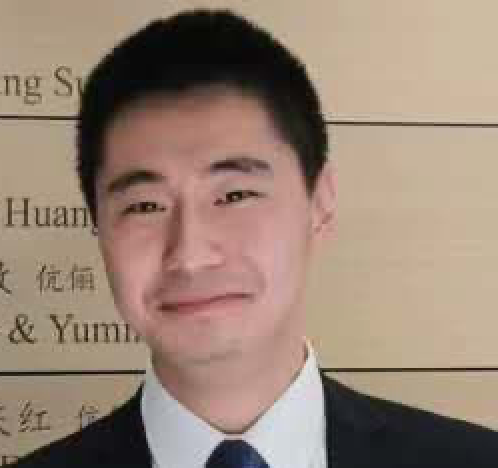Open letter from subwardens to the College
Subwardens from 7 halls publish a letter addressed to the College in which they lay out failures by the College to adequately support them

To whom it may concern,
This year has been a hugely difficult year for everyone. There have been issues this year that have made wardening in halls even more difficult. Many of these issues, we feel, were avoidable. We would like to take this opportunity to detail these issues from the perspective of Subwardens working on the ground and among students. Many of these issues have been raised before, but having not received timely or sufficient support from the College, we have decided to share our perspective with the rest of the Imperial community, and to clarify our role to those who may have received the wrong impression.
The primary role of wardening teams is to provide welfare support for students. As students were arriving in September, we were informed of the plans for restrictions and management of life within halls. At the time we raised significant concerns that with the restrictions in place, we would have difficulty providing welfare support. Rather than take this on-board and work to improve the situation, College instead made our lives harder. For example, we were initially told that our role would be to encourage the COVID rule compliance – not enforce it. But the College later changed its mind, pushing responsibility for enforcement of the rules onto us, in the process further destroying any perception of the wardening teams as providers of wellbeing support. Not only that, but this information was provided to students and the public via social media before being officially passed on to the wardening teams themselves. We were told that the restrictions that had been put in place in halls were the minimum level of restriction advised by Public Health England (PHE). However, some of the restrictions and many of the College’s actions this year suggest that, to some extent, decisions are being made at a college level without considering the students perspective and what living under these conditions is like.
Empty platitudes such as “make sure you look after yourself” and “make sure you take time off”, mean nothing when they come from the same organisation that is pushing more work on us
Having pushed the role of enforcement onto the wardening teams, College has singularly failed to provide the appropriate support. We only received the COVID-specific disciplinary framework to work under in December after months of asking. In the interim, all decisions on discipline were left to the wardening teams. This has made us appear to be police rather than the welfare providers we are supposed to be. This enforcement role has also made several Subwardens feel unsafe or hated in the places they live. During the first term it was judged that it was ‘unsafe ’for security to do rounds , but wardening teams were and still are required to do rounds and to enforce rules, which shows a huge lack of consideration for the welfare of wardening teams themselves. While we have been provided PPE, we are sure the safety team are aware that PPE is an absolute last resort when considering a risk assessment.
Communication between college and students has followed a scatter gun approach and very difficult to follow this year with several different sources of vital information and with some of these locations retaining out of date or erroneous information.
The contact tracing (CCT) hub has also been a significant source of problems for us as subwardens. The fact that the CCT hub was staffed by a single person early in the first term is unacceptable. This pushed work on to staff and students who have a full-time role outside of wardening, and who were initially informed they would not have to take on these administrative roles. On top of that, much of the additional work to support the CCT hub, as well as the correcting of its mistakes, could have been avoided or pre-empted with more detailed communications or by having us feedback on the system earlier on.
During the periods of national lockdown, a concern from students and wardening teams has been the size of households, isolation of students and the effect that this is having on their mental health. This was an issue we identified at the start of term and in the initial briefing and raised to college. We are relieved that at last, College are beginning to show some flexibility on this issue, but once again they are asking the wardening teams to sort out their mess and to try and do so within their failed householding framework. The accommodation office who should be handling this issue has at times provided unacceptable service, with emails about welfare issues from students going unanswered for weeks. When this is the only place we can direct students with these concerns to, this is completely untenable. This also led to students believing the wardening teams developed the household zones along with the rules, when this is not the case.
We were initially told that our role would be to encourage the COVID rule compliance – not enforce it. But the College later changed its mind, pushing responsibility for enforcement of the rules onto us
Wardening teams live in halls, many in a household of one person, so that they can best respond to student issues. This is an isolating and draining experience, especially with the huge additional workload being put upon us. Empty platitudes such as “make sure you look after yourself” and “make sure you take time off”, mean nothing when they come from the same organisation that is pushing more work on us. College is relying on the fact that they select wardening teams by looking for those who understand and are best placed to support welfare issues. We are by nature very caring people who will put a lot of effort into helping the students where we can. So, they know they can put more on us and it is unlikely we will leave, because we know that student welfare would suffer. This is not new, and, especially this year, we do not feel supported in our roles. Our opinions are rarely sought even though we are uniquely placed to understand our individual halls. There has been additional work, yet there have been fewer team members. Emails to our supervisors and departments explaining that we have been under additional strain have gone out later than anticipated and do little to make up for lost time in our research projects. Suggestions from supervisors and department representatives of funding extensions supported by student services do not seem to have been taken into account.
To the College, you need to stop patting yourselves on the back about the low COVID cases among your students and act. Though on the whole college might be doing well on the surface in the face of COVID, on the ground, there are many other issues still present. In addition to some of the issues we have already highlighted, the number of mental health issues among students this year is shooting up. We remain firm in our belief that this will be much worse for College than COVID itself. We hope there are wardening teams there to support those issues when they arise, and that your work to destroy our reputation for providing welfare has not succeeded.
To the students, your Wardens and Subwardens are people too. They work full time in the day on their jobs and their studies and the rest of their waking hours at the moment doing the best they can for you. We have been fighting for student welfare since before students arrived this year. We understand this is a difficult time for you. Please come to us if you have any problems, we are here to help, we will not judge, we will listen, and we will fight to get you the support that you need. Please continue to protect our community by following the rules so we can all make the best out of this year.
A group of Subwardens from 7 Imperial Halls




